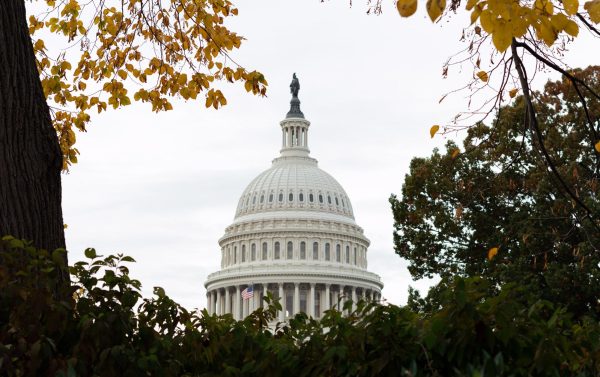Keep UK gun free
March 31, 2016
On March 30, 2016 at approximately 3:08 p.m., a UK alert reading “Reported armed robbery at Parking Structure 3. Avoid Area,” was sent out to students. Within the hour an all-clear message was sent out and the day continued as normal.
As crime on and near campus continues to occur, will the Kentucky join the eight other states that permit concealed weapons on campus?
Kansas, Mississippi, Oregon, Texas, Utah, Wisconsin and Texas have all passed legislature allowing concealed carry on campus. Kentucky is one of 23 states that put the decision to ban or allow concealed carry weapons on campus in the hands of the universities.
UK allows few people to carry guns on campus, including those who are specifically authorized to carry concealed deadly weapons by KRS 527.020 to concealed carry on campus; otherwise weapons must be left in a vehicle.
Although the urge to follow in the tracks of other states runs strong during times when crimes are being committed on and close to campus, UK must continue to refuse concealed carry on campus.
Biology and microbiology double major Fatma Froukh said allowing concealed carry on campus would not make her feel safer.
“I wouldn’t feel safe if (concealed carry) was allowed, especially on campus, because it’s full of mostly young adults who tend to be more reckless,” Froukh said.
Froukh also said allowing concealed carry on campus would bring more distractions to students in places where they should be focused.
“I think that if this were to be allowed, the crime rate on campus would increase, which would result in an unsafe campus environment,” Froukh said.
When Texas passed its bill allowing concealed carry on campuses, one opponent was a former Navy SEAL, who was the commander of United States Special Operations forces that directed the raid which killed Osama bin Laden.
Admiral William McRaven, former Navy ninth commander, is now the chancellor of the 15-campus University of Texas System, and did not agree with the campus-carry bill.
“I’m a guy who loves my guns … I have all sorts of guns. I just don’t think bringing guns on campus is going to make us any safer,” McRaven said.
There were 52 U.S. school shootings on college campuses in 2015, according to Everytown for Gun Safety, and, as of Feb. 12, seven total school shootings in 2016.
Students also believe allowing weapons on campus would increase tension between peers.
“I think there would be conflicts on campus if people were allowed to carry guns,” nursing sophomore nursing Austin Guerrero said. “I wouldn’t be scared, but I don’t think school is the place for guns.”
Advocates of campus-carry laws often claim that allowing weapons on campus provides safety, as they would allow students to be able to fire back, and stop campus shootings before lives are taken. However, as it may seem that school shootings are on the rise, schools are actually becoming safer than they once were.
Since 1992 the rate of “victimization” (including violent and non-violent crimes) has dropped from 181.5 incidents per 1,000 students, to 49.2 incidents per 1,000 students.
In an effort to reduce conflicts and keep campus safe, UK should maintain its current stance on concealed carry.
In the wake of violence, fighting fire with fire rarely works, and many believe that allowing concealed carry would do the opposite of keeping campus safe.
Savon Gray is a journalism sophomore.
























































































































































